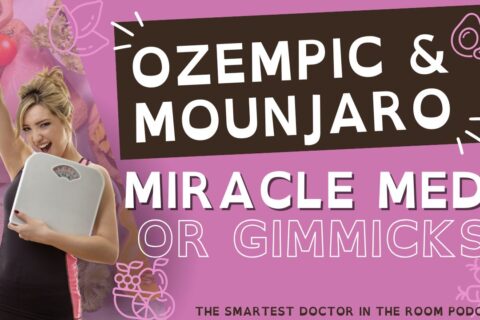Mononucleosis in Adults: What to Expect and How to Cope

[updated January 2020]
CONNECT WITH US:
Infectious Mononucleosis, or more commonly known as “Mono”, is a viral infection most commonly due to the Epstein-Barr virus (although it can be due to Cytomegalovirus (CMV) as well). In fact, the Epstein-Barr virus (EBV) is the most common cause of infectious mononucleosis, but other viruses can also cause this disease.
Mono has the reputation for being the “Kissing Disease” because amongst the teenage and collegiate ages it is most commonly transmitted through saliva. A person can be exposed to the Epstein-Barr virus (EBV) by kissing, sharing eating utensils, or drinking from the same glass as a person who has mono.
Symptoms of Mono
The most common symptoms of mono, typically present four to six weeks after you get infected, include:
- rash
- sore throat
- head and body aches
- swollen lymph nodes in the neck and armpits
- extreme fatigue
- fever
- swollen liver or spleen or both
How Common is Mono?
The Epstein-Barr virus that causes mono is very common and around 90% of Americans are infected with it by age 35. And not everyone who has the virus develops mono symptoms – many people only carry the virus. Most people get the virus as early school-age children or around adolescence/young adulthood; but, anyone can get it, no matter their age.
Mono in Adults
Now, most adults, whether they ever developed full-blown Mononucleosis or never had any known symptoms, typically have protective antibodies to the Epstein-Barr virus. This is a good thing because if you have antibodies to the Epstein-Barr virus you should be immune to being infected and becoming sick.
Here’s the conundrum: How do adults present when they come down with Mono? And do they recover the same way young teenagers do?
The answers to these questions are of special concern. Unlike the youngsters, adults with Mono often don’t have the same presenting symptoms of an acute, severe sore throat and swollen lymph glands in the neck. Adults with Mono can experience chronic stomach pain and fatigue of insidious onset.
The adult form of mononucleosis caused by the Epstein-Barr virus is different from the disease in children and adolescents.
Symptoms of Mono in Adults
The symptoms for adults are different than children and adolescents.
- NO swollen lymph nodes
- NO atypical white blood cells
- NO enlarged spleen
- NO sore throat
- Jaundice
- Enlarged liver
Most often, mono in adults is confused with lymphoma, leukemia, or gall bladder obstruction. It can also be mistakenly classified as “fever of unknown origin.”
Roger Federer, the world champion tennis star played for months on the tennis tour not knowing he had Mono. The main complaint he endured was persistent stomach pain. Fortunately, he was diagnosed and gave his body some extra time to recover. Robin Soderling, a Swedish top-ranked tennis player wasn’t as fortunate. He developed Mono and the fatigue he developed never improved and his tennis career was cut short in his early thirties: the prime of his career.
Chronic Mono Treatment
Teens and young adults with Mono with proper rest in the vast majority of cases make a full, uneventful recovery. I postulate this is because they are more quickly diagnosed and taken care of by their families. In adults, unaware they may have Mono continue their daily routine and work possibly depleting their immunity further.
In adults, Mono can get complicated.
I’ve seen more than my share of patients with debilitating fatigue that may have been preceded by the Epstein-Barr infection. My approach to adult patients that have Mononucleosis is more proactive than I would with a teenager. Adult Mono patients with significant fatigue are treated in my practice with Intravenous Vitamin C and B vitamins to keep their immune system strong. I also provide these patients with injections of Gamma globulin- the antibodies from serum that boost immunity.

The bottom line for adults: if you are suffering from chronic fatigue, ask your doctor to test you for Mono. It is a simple blood test, and finding out the answer can get you directed towards the proper recovery.
Dr. Dean Mitchell, M.D.
Mitchell Medical Group in NYC and Long Island
About the Author – Dr. Dean Mitchell, M.D.
Dr. Dean Mitchell, M.D. is a Board Certified Allergist and Immunologist based out of NYC. He graduated from the Sackler School of Medicine and completed training at the Robert Cooke Allergy Institute in New York City. He is also a Clinical Assistant Professor at Touro College of Osteopathic Medicine, a fellow of the American Academy of Allergy, Asthma, and Immunology, and the author of Dr. Dean Mitchell’s Allergy and Asthma Solution: The Ultimate Program for Reversing Your Symptoms One Drop at a Time. Dr. Dean Mitchell, M.D. has also been featured in The New York Times, The Huffington Post, Fitness Magazine, Dr. Oz and News NY 1. Dr. Mitchell also hosts the podcast The Smartest Doctor in the Room – a combination of a lively, personal, and in-depth interview with top healthcare specialists.
References:
Epstein-Barr Virus and Infectious Mononucleosis. Centers for Disease Control and Prevention. https://www.cdc.gov/epstein-barr/about-mono.html
Yes, Older Adults Can Get Mono, Too. Advantage Home Care. https://advantagehomecaremaine.com/older-adults-mono/
What is Mononucleosis? What Causes It? WebMD.com. https://www.webmd.com/a-to-z-guides/understanding-mononucleosis-causes#1


